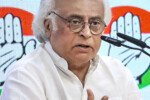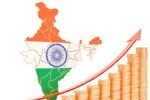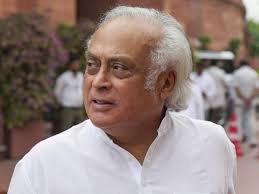NEW DELHI, Oct 25: The Congress on Friday said inequality, wage stagnation and inflation were “structurally corrosive” to India’s long-term growth prospects and urged the government to address concerns over the growing financialisation of the Indian economy.
Congress general secretary in-charge communications Jairam Ramesh said the centrality of increasing the rates of private investment as a percentage of GDP in order to sustain higher rates of economic growth was incontrovertible.
These rates have fallen from 33.4 per cent (2004-2014) to 28.7 per cent (2014-2023), he said.
Ramesh shared an article by a noted public finance economist and said it revealed issues that were a further cause for concern.
Citing the article, Ramesh said the share of passive income — income from rent, dividends, capital gains, etc — in the total reported income had increased from 16 per cent in 2016-17 to 24 per cent in 2023-2024.
For the corporate sector, the share of passive income (income outside of operating profits) increased from 16.6 per cent in 2016-17 to 30.7 per cent in 2023-24, the Congress leader said.
This shift in capital gains indicates a shift in corporate preferences in favour of financial investments rather than productivity-raising physical investments, Ramesh said.
The cause of this shift away from physical investments is the muted demand for goods and services in the post-Covid recovery, which has largely left the poor and the middle classes behind, he said citing the article.
Ramesh said, “Inequality, wage stagnation, and inflation are not just political issues — they are structurally corrosive to India’s long-term growth prospects.”
If not the opposition, the government must listen to its own chief economic advisor, who has himself raised alarm over the growing financialisation of the Indian economy, he said.
The Congress has been attacking the government over its handling of the economy and raising concerns over “increasing” unemployment and price rise.
Earlier this month, the Congress alleged that the last 10 years witnessed “highly detrimental economic trends”.
It said the monsoon had receded but at least “three dark clouds” of languishing private sector investment, stagnating manufacturing and the decline in real wages and productivity for labourers still loomed over the Indian economy. (PTI)












